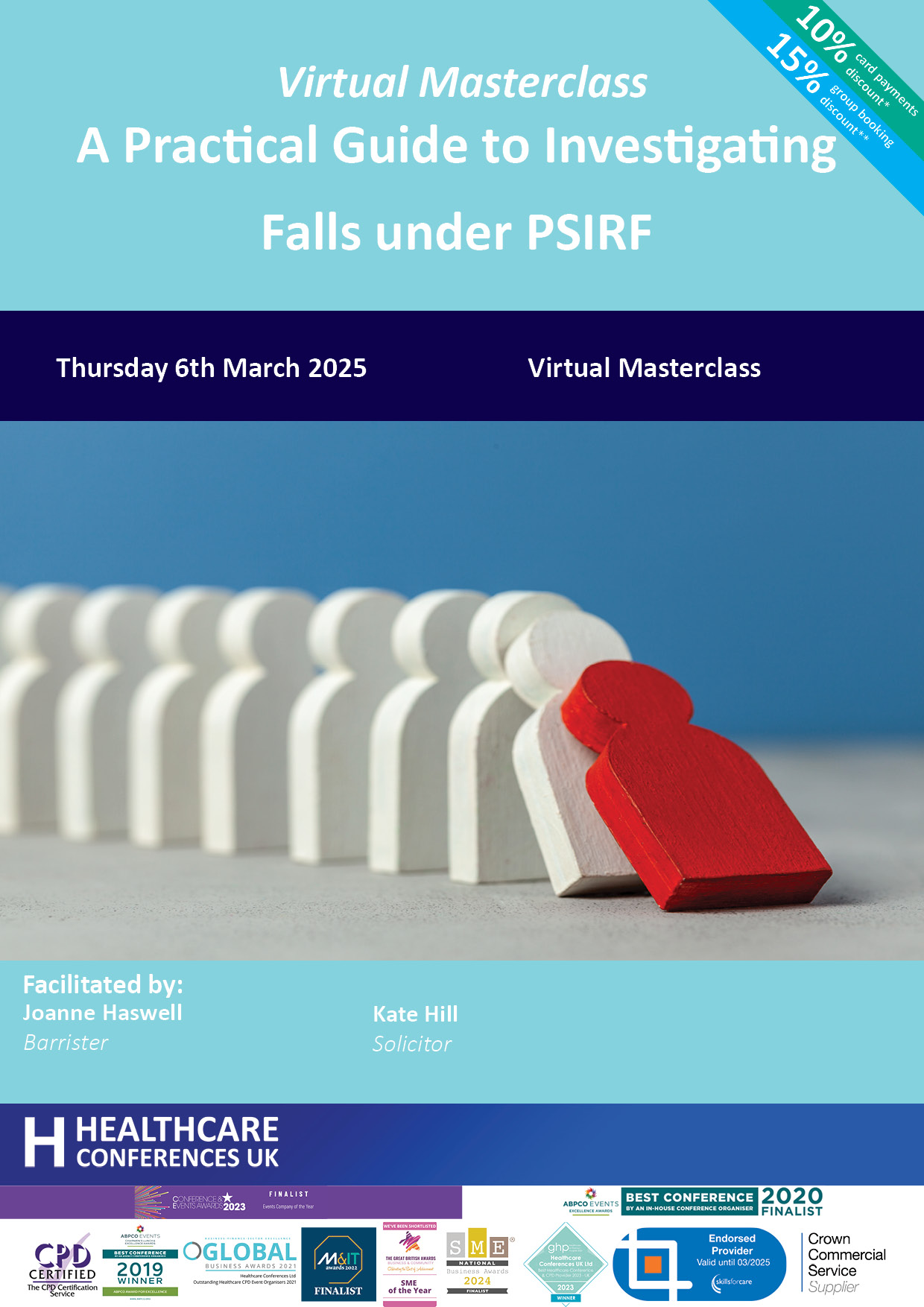This interactive and practical course will provide a structured approach to investigating falls. You will be guided through gathering the evidence, conducting a detailed analysis of the issues and production of the final report using a blame-free, systems-based approach.
“Falls are the most commonly reported patient safety event with around 250,000 occurring in inpatient settings in England every year. Falls are not random events but occur due to the presence of fall risk factors. Evidence suggests that all inpatients aged over 65 should have a multi-factorial fall risk factor assessment to identify fall risk factors and prompt tailored interventions. When falls do occur, prompt and effective post-fall management should be delivered. Aligned with PSIRF principles, responses to falls should be proportionate based on the potential for new learning and improvement and should focus on exploring multiple contributory factors. To learn from falls and improve patient safety, the response should seek to understand how fall prevention is managed at an organisational, unit/ward and patient level using multi-disciplinary input”
The Royal College of Physicians PSIRF document for Falls 2023
This one-day training session will equip delegates with the skills to manage and investigate different types off falls. The day will be case study led and delegates will have the opportunity to ask questions pertaining to their own area of practice. Different types of learning responses will be explored, such as PSII, AAR, Swarm Huddles and thematic reviews.
KEY LEARNING OBJECTIVES
What is a slip, a trip and a fall?
Choosing different types of learning responses
How to recognise the systemic, human, intrinsic and extrinsic factors associated with different types of falls
Undertaking effective site visits
Focus on organisational learning through systemic analysis
Practical report writing skills







